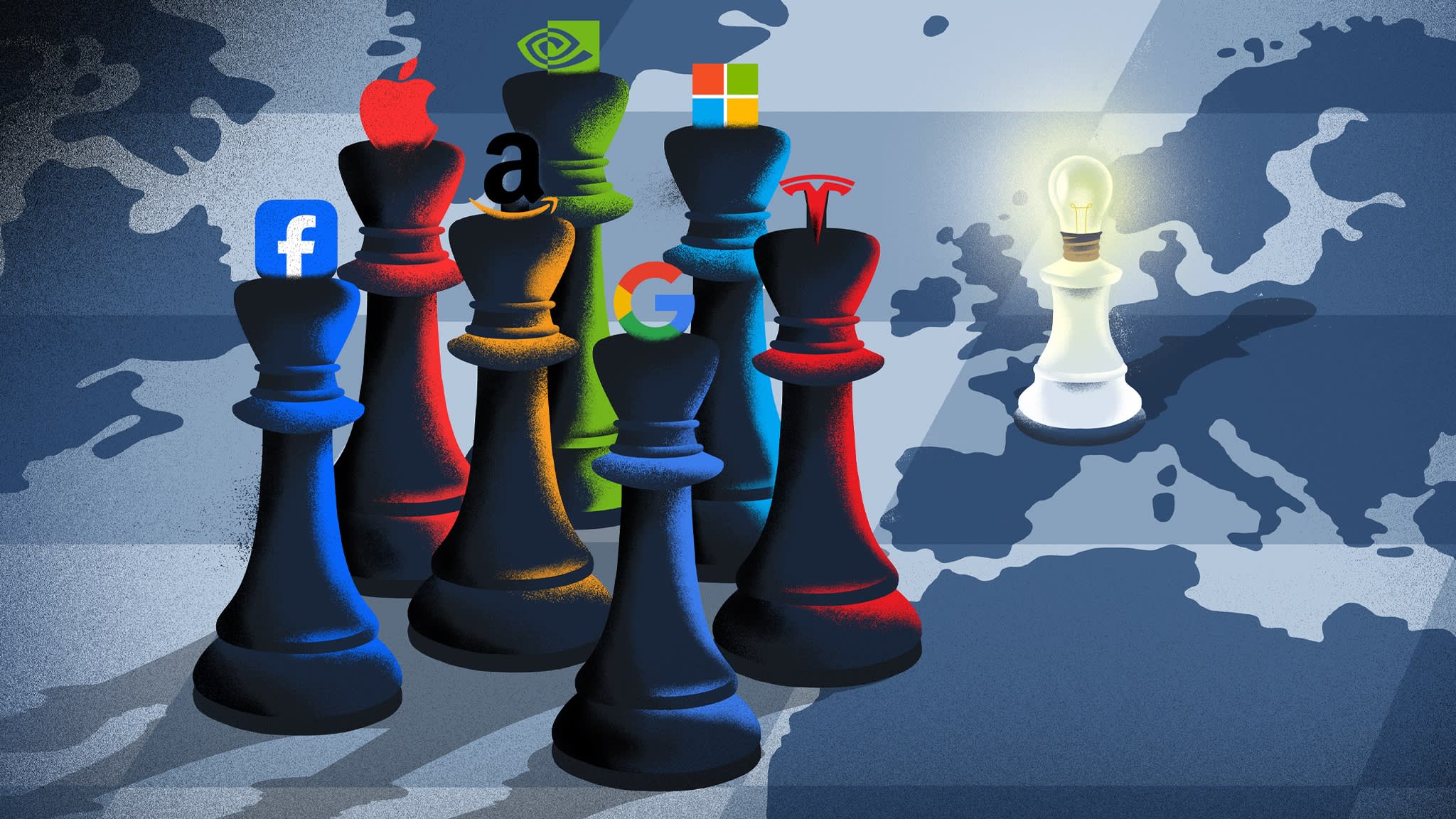A Call to More ARMs

A good post by Ian Hogarth in the form of a rallying cry for Europe to wake up and smell the unicorns. As he notes, while more or less all of the AI startups doing massive fundraising at a rapid clip are in the US at the moment (or a few in more opaque ways, in China),1 it was a UK-based startup, DeepMind, which arguably kickstarted this whole frenzy. As the emails recently made public thanks to the lawsuits between Elon Musk and OpenAI confirmed, that company was founded because Sam Altman and Musk were worried that Google was going to own the entire space thanks to their acquisition of DeepMind a decade ago.
While the DeepMind outcome was a good one – reported to be north of $500M at the time – can you imagine what DeepMind as a stand-alone company would be worth today? Certainly north of $100B in this current environment. It would really just be a question if it would be worth more than OpenAI. And while obviously that depends on many factors, it's no stretch to think that it would be.
So did DeepMind sell too early? With the benefit of hindsight, obviously. But again, the market for AI wasn't there yet because their very sale helped kickstart it. So it's a bit chicken-and-egg. But it also speaks a bit to the reason Europe hasn't seen the success the US has when it comes to startups and now ultra-cap trillion-dollar companies. As Hogarth puts it:
The obvious point is that to eventually be worth $1tn, you need to not sell earlier for a number smaller than that.
Got it.
Again, we have both the hindsight situation here and yes, easier said than done. But there is something to his notion that part of the advantage in the American market is simply that more entrepreneurs have been through the paces as it were multiple times. And, as Hogarth argues, multi-time founders are often more likely to go after bigger ideas the second time around. Because they know the hardships of doing a startup. So you're more likely to recognize that you have to be doing something big enough to make it worth your time. There are other advantages for multi-time founders, of course – with Hogarth using the DeepMind co-founder Demis Hassabis as a clear example:
The first and most obvious reason for this is that like any profession, being a tech start-up founder is a kind of craft — and the longer you do it, the more you refine the craft. So when it came time for Hassabis to raise his first round of funding for DeepMind in 2010, he knew better than to waste time on conservative European investors and headed straight to Silicon Valley where he was able to raise investment from experienced founders such as Peter Thiel and Elon Musk.
We'll leave aside the fact that Hassabis still ultimately sold DeepMind despite being that multi-time founder (again, it wasn't necessarily the wrong call at the time, it just looks that way now, obviously). The key is that he had set up DeepMind for massive success, including with the investors around the table. Speaking of, Musk himself, of course, is another great example of all of this:
This is the second reason that experienced founders are so important — for their second or third company they will often tackle harder challenges. Musk is the quintessential example of this — his first company in 1995, Zip2, was an internet city guide, his second in 1999 was an online bank, and his third in 2002 was a space exploration company.
As with anything else, there's value in reps and experience. Even when – and perhaps especially when – starting a company. I'd argue that this is another huge problem with the current environment where it's nearly impossible for M&A to happen because the current regulatory environment (or fear there of) – something else Mignano and I go into on the podcast, but something I also talked about here and on the This Week in Startups podcast a few weeks back. M&A is a natural off-ramp for not only many startups, but many startup founders. And even if the outcomes are huge – and in fact, especially when the outcomes aren't huge – it can lead to the cycle described above. Entrepreneurs get back out there to try again, often with a bigger idea and yes, more experience under the proverbial belt.
It also, I would note, frees up some VC time to deploy more capital in new companies/ideas. It's not just about the money, honestly – we need this M&A to come back in full force all around the world.
And in the case of more successful outcomes, founders have the capital to become investors as well, such as the Thiel and Musk funding DeepMind example above. Jeff Bezos helping to fund Google, etc.
As investors, experienced founders are also often a source of the most audacious capital, funding start-ups with a higher level of risk or a longer gestation period before they start to work and make money. The game 'Civilisation' introduced the concept of the “tech tree” — the idea that progress in technology can be visualised as a tree in which new branches of technology sprout from the main trunk and then allow for a network of subsequent branches to grow. For example, semiconductors were needed to enable personal computers.
Experienced founders are often most likely to fund new branches of the tech tree. In Silicon Valley, more than 60 per cent of the partners at top venture capital funds were previously founders and chief executives; in Europe, by contrast, the figure stands at a dismal 8 per cent.
That is sort of a wild stat. But it's also something I suspect will naturally change with time, as is the case with everything discussed here. It's just a function of a market maturing.2 That's really the key of Hogarth's piece: the stage is now being set for success thanks simply to time. His point, I assume, is to push entrepreneurs (and European VCs and even, in a way, governments) to be more bold right now to move this all a bit faster. Even a 5% uptick in boldness can perhaps move the needle in a meaningful way here.
Lastly, Hogarth cites examples of a big European tech deal that didn't happen:
Ek was a second-time founder when he started Spotify and, despite a reported billion-dollar offer to sell to Google in 2009, remained independent; the company now has a market cap of $95bn.
Dutch payments company Adyen didn’t sell and is now worth $46bn, Wise is now worth $11.4bn and Arm Holdings is the UK’s most valuable technology company, worth $143bn, but only because an attempted acquisition by Nvidia in 2020 was blocked. Can you even imagine the level of dominance Nvidia would have today if it owned Arm too?
It's hard to imagine that this proposed deal was only four years ago. And for $40B! Such a tie-up would be wild right now. Sort of like Google and DeepMind! Of course, there's slightly more nuance here since it's actually SoftBank that owns nearly all of ARM. And so the blocking of such a deal was less great for Europe than it was for SoftBank. So really, it's another example of a European company that sold "too early" back in 2016. Of course, it's all relative – ARM was founded in 1990.3 Such things take time.
1 Yes, yes, here's where everyone simply must mention Mistral out of France. We'll see what the outcome ends up being there...
2 Fine, I mainly just wanted to cite these paragraphs to acknowledge the Civilization shout-out. Unclear if more hours of my youth were spent on Civ or SimCity. It's close.
3 As a joint venture that was an offshot of a project to create a processor for the Apple Newton, of all things.

